Tea is one of the most popular beverages around the world. Beyond its pleasant flavor, tea has many health benefits, especially for heart health. The compounds in tea called polyphenols are powerful antioxidants that can help reduce inflammation, prevent clogged arteries, improve blood pressure, and lower cholesterol.

There are eight main types of tea, each with its own unique polyphenol profile that contributes to cardiovascular wellness. By incorporating more of these best teas for heart health into your diet, you can boost your heart’s vitality and potentially extend your lifespan.

1. Green Tea
As one of the most consumed teas globally, green tea derived from the Camellia sinensis plant offers copious heart health benefits. It is especially high in a catechin antioxidant called epigallocatechin gallate (EGCG). The EGCG content gives green tea the ability to prevent atherosclerosis by inhibiting LDL cholesterol oxidation and vascular inflammation.
Multiple epidemiological studies have found that habitual green tea drinkers have a 15-20% lower risk of developing cardiovascular disease compared to non-drinkers. An analysis of over 100,000 individuals in Japan also showed that each daily cup of green tea reduced the risk of heart attack by 28%. These cardiovascular protective effects stem largely from green tea’s direct impacts on the vascular system via vasodilation, reduced platelet aggregation, and lower blood pressure.
So by regularly enjoying green tea’s pleasantly grassy flavor, you allow its antioxidants like EGCG to scavenge throughout your bloodstream, protecting lipids from peroxidation and clearing atherosclerotic plaque buildup in your arteries. Therefore green tea preserves smooth vascular functioning and prevents the risk factors that can lead to myocardial infarction and stroke.
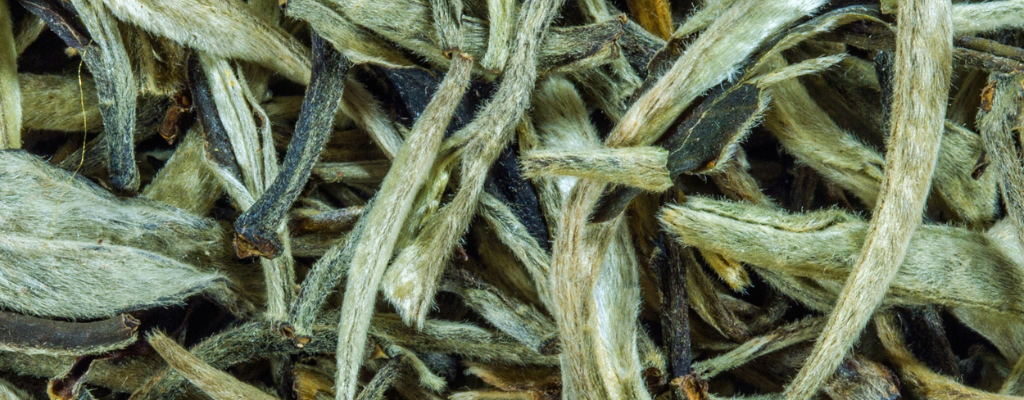
2. Silver Needle Tea
Silver Needle White Tea may be lesser known than green tea, but it originates from the same Camellia sinensis species of tea plant. The key difference is that white tea is far less processed, with only the unopened tea leaf buds being dried and packaged after plucking. This minimal processing helps white tea retain higher concentrations of potent antioxidants that provide anti-cancer and circulatory health effects.
Though studies specifically on white tea for heart health are limited, there is some promising evidence. The main heart-related benefit stems from white tea’s abundant supply of antioxidants like polyphenols. The catechin called epigallocatechin (EGC) in white tea improves vascular function and blood pressure according to several trials. Researchers speculate further cardiovascular protection from the direct scavenging actions of antioxidants against reactive oxygen species that damage the vascular endothelium.
So while it may lack some of the renown of green tea, white tea still positively impacts biomarkers related to cardiovascular disease. Its minimal processing provides antioxidants that preserve the delicate endothelium lining of your arteries to promote healthy blood flow and prevent atherosclerosis.
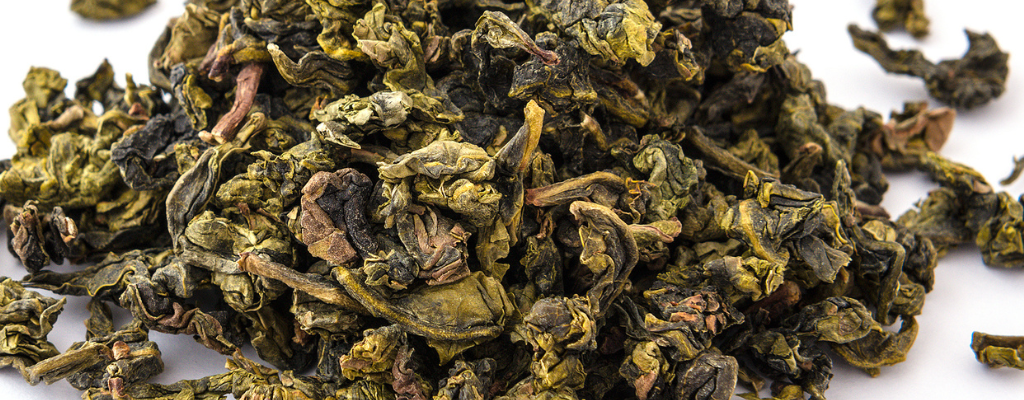
3. Oolong Tea
Oolong tea leaves undergo partial oxidation, giving it an intermediate flavor between green teas and black teas. Studies on oolong tea extracts show incredible potential for improving heart health, ranging from cholesterol reduction to enhanced vascular function.
One randomized control trial had participants consume 1 liter of oolong tea daily over a 30-day period. Remarkably, the oolong tea group saw average LDL cholesterol levels plunge by over 20%, indicating a powerful hypolipidemic benefit. Another major 12-year cohort study in Chinese adults found regular oolong tea drinking slashed the risk of developing hypertension by 46%.
Oolong tea’s vascular protective effects stem primarily from its rich supply of polyphenol antioxidants, mainly the compounds called polymerized polyphenols. These antioxidants boost nitric oxide production to relax blood vessels, keeping your circulation and blood pressure healthy.
But do be aware that oolong tea’s potent active compounds can also sometimes induce diarrhea or interact with certain medications like anticoagulants. Overall though, oolong tea is an outstanding option to incorporate into your diet for strengthening the resilience of your cardiovascular system.
Expanding on its health benefits, oolong tea has also been associated with weight management and metabolic health. Its ability to slightly increase metabolism and fat oxidation makes it a popular choice for those looking to manage their weight. The tea's influence on metabolic rate is subtle yet significant enough to be a helpful adjunct in weight loss strategies.
Furthermore, oolong tea's potential to improve skin health has been noted in some studies, suggesting that regular consumption may help in reducing the occurrence of certain dermatological conditions. Its antioxidant properties may contribute to this effect, offering protective benefits against free radical damage to the skin.
Oolong tea, with its delicate taste and myriad health benefits, is more than just a beverage; it's a wellness experience that nurtures both the body and mind.
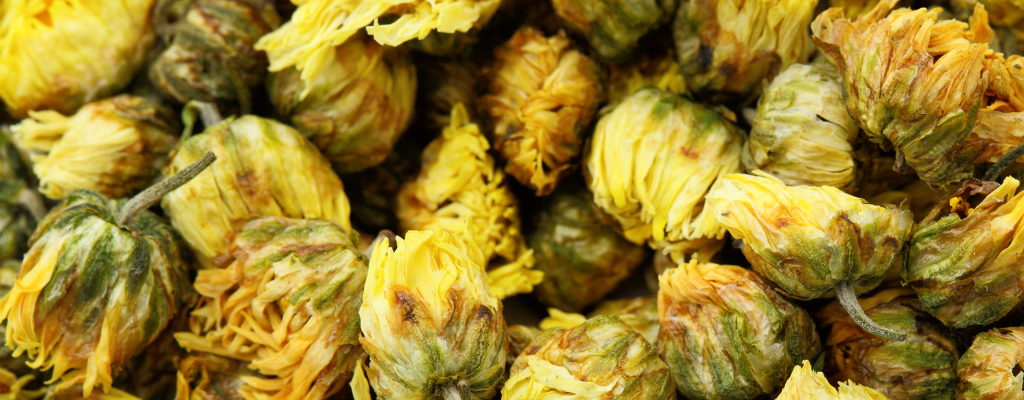
4. Chamomile Tea
With its gentle floral aroma and soothing taste, chamomile tea is best known for its sedative properties to reduce stress and promote sleep. However, emerging research shows chamomile tea has compelling impacts on your cardiovascular system as well. Chamomile flowers contain an abundant mix of antioxidant flavonoids like quercetin, patuletin, luteolin, and apigenin that regulate blood vessel functioning.
A study in 64 diabetic patients examined the effects of chamomile tea intake over an 8 week period. They discovered chamomile not only lowered hemoglobin A1C levels but also significantly decreased the inflammation marker interleukin-6 and fibrinogen levels. Elevated fibrinogen causes blood platelets to stick together into clots, so chamomile’s antithrombotic activity highlights a potential to protect against stroke and heart attack.
Furthermore, a trial in herbal tea extracts found chamomile relaxed blood vessels and increased nitric oxide production similar to black tea. So by relieving vascular inflammation and thrombosis risks, chamomile tea consumption aids long-term cardiovascular health.
Chamomile may also ease women’s cardiovascular troubles associated with menstrual cramping and menopause. Several studies found chamomile alleviates menstrual pain severity and stabilizes mood swings in menopausal women via interactions with estrogen receptors. Thereby chamomile tea delivers wide-ranging benefits for upholding proper vascular and hormonal functioning.

5. Tartary Buckwheat Tea
You may be unfamiliar with Tartary buckwheat tea made from the herb Fagopyrum tataricum. However in East Asia, it is a traditional beverage consumed specifically for its beneficial impacts on heart health. Rich in unique antioxidant flavonoids like rutin and hyperoside, Tartary buckwheat tea helps control blood lipids and glucose levels.
A recent study discovered Tartary buckwheat tea even outperformed green tea in preventing hypertension in test animals. After 10 weeks of consumption, it significantly lowered average blood pressure levels and prevented vascular dysfunction.
The bioactive compounds in Tartary buckwheat tea like rutin boost nitric oxide production, which helps your arteries and veins to dilate and increases blood flow. A clinical trial also demonstrated decreased platelet aggregation in those who regularly drank Tartary buckwheat tea, possibly lowering the risks of catastrophic clotting events. Its antioxidant and anti-inflammatory activities further help reduce endothelial damage that can initiate atherosclerotic lesions.
While more extensive clinical research is still needed, the current evidence verifies long-term Tartary buckwheat tea intake guards against risk factors underlying most cardiovascular diseases.

6. Hibiscus Tea
Hibiscus tea, with its striking red infusion, offers more than just visual appeal. This beverage is a powerhouse for cardiovascular health, thanks to its high content of anthocyanins, a type of antioxidant. Research has repeatedly shown the efficacy of hibiscus tea in reducing blood pressure, particularly in those with hypertension.
One notable study highlighted a 6-week regimen where replacing regular beverages with hibiscus tea led to a significant drop in systolic blood pressure, averaging over 7 points. This effect is primarily due to the tea's ability to induce vasodilation, which reduces the peripheral resistance in blood vessels, facilitating smoother blood flow.
In contrast to many pharmaceutical solutions for managing blood pressure, hibiscus tea stands out by avoiding adverse side effects. It offers additional cardiac benefits such as anti-inflammatory properties, lowering LDL cholesterol, preventing platelet aggregation, and inhibiting the proliferation of smooth muscle cells within arteries.
These health benefits are largely attributed to the enhancement of nitric oxide bioavailability and the suppression of inflammatory mediators like VCAM-1. Hibiscus tea may initially not seem as enticing as the more delicate flavors of green or floral teas, but its tart, cranberry-like taste comes with unmatched benefits for cardiovascular protection.
Beyond its direct impact on cardiovascular health, hibiscus tea also offers a range of other health benefits. Its high vitamin C content boosts the immune system, making it an excellent beverage choice for cold and flu seasons.
Additionally, hibiscus tea has diuretic properties, which help in flushing toxins and excess fluids from the body, contributing to kidney health. Its calming properties are also notable; the tea has been linked to reducing stress and anxiety, promoting a sense of relaxation. This makes it a suitable drink for unwinding after a long day.
The versatility of hibiscus tea, both in health benefits and in the ways it can be enjoyed - hot or cold, sweetened or unsweetened - makes it a valuable addition to a healthy lifestyle.
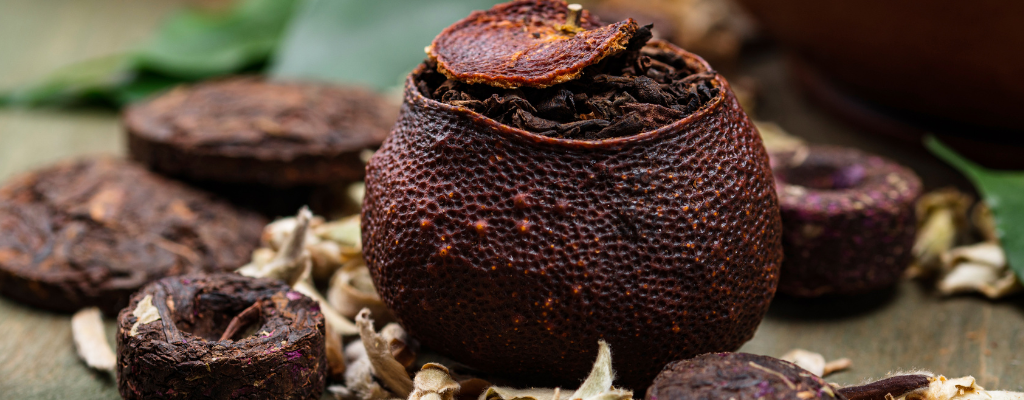
7. Fermented Tea
You’re likely already familiar with the wondrous probiotic world of fermented foods like yogurt, kimchi, and kombucha. But did you know certain teas are also fermented using microbes to boost their nutritional content and health effects? These fermented teas provide live populations of bacteria that colonize your digestive tract, enhancing microbial balance and phytochemical bioavailability.
Studies specifically show fermented Pu-erh tea from Yunnan, China significantly improves blood lipid profiles. Over 8 weeks, hyperlipidemic patients drinking Pu-erh tea daily exhibited remarkable 35% and 45% drops in triglyceride and LDL cholesterol levels respectively.
Pu-erh tea further attenuates arterial plaque buildup by inhibiting vascular smooth muscle proliferation. Its microbial fermentation enriches Pu-erh with inflammation-regulating gallic acid to preserve endothelial function.
So by drinking fermented teas like Pu-erh, you supply beneficial bacteria that positively influence cholesterol metabolism and gastrointestinal functioning. Simultaneously, microbial transformations substantially boost the bioactive polyphenols that offer profound cardiovascular protection. Fermented teas thereby deliver synergistic microbiome-based benefits alongside traditional cardio-protective plant phytochemicals.
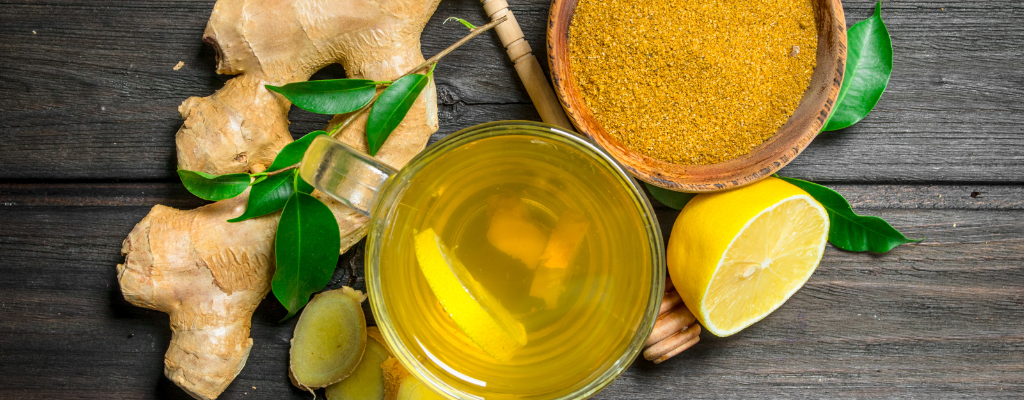
8. Ginger Root Tea
While ginger root tea lacks the delicate complexity prized in leaf-based teas, its zesty pungency delivers tremendous therapeutic potential, including for heart health. Ginger root contains an abundant mix of phytochemicals like shogaols, gingerols, and zingerone that hold antioxidant, anti-inflammatory, and blood-regulating activities.
Multiple clinical trials found regular ginger tea consumption significantly lowers blood pressure, cholesterol levels, and atherosclerosis risk. One study had patients with type 2 diabetes drink 3 grams of ginger powder in tea daily for 8 weeks. By the end, the ginger group averaged over 10 mmHg drop in systolic blood pressure. Another trial using ginger extract capsules achieved 10% and 28% reductions in patient’s LDL and triglyceride levels respectively over 45 days.
Researchers believe ginger root tea components like shogaols and gingerols boost cardiac cell functioning while lowering smooth muscle contraction in blood vessels. This allows blood to flow more freely and reduces stress on the critical pumping chambers of the heart. The anti-inflammatory gingerols further inhibit pathways underlying inflammatory disorders that can damage blood vessels and cause clot formation.
Beyond the cardiovascular system, ginger tea eases gastrointestinal distress and bloating, helps resolve menstrual cramps, and relieves pain associated with arthritis or muscle soreness.
So by regularly sipping antioxidant-packed ginger root tea, you obtain widespread benefits spanning from your digestive system and uterus to your brain, joints, lungs, and heart due to its myriad anti-inflammatory bioactives.
Conclusion
Tea is clearly far more than just a comforting and flavorful beverage for most people. The rich mix of polyphenols, antioxidant pigments, anti-inflammatory compounds, and probiotics in tea leaves provide profound impacts on human health, especially cardiovascular wellness. Habitually drinking green tea lowers risk of mortality, white tea preserves arterial resilience, and chamomile tea alleviates vascular inflammation. Even more obscure options like Tartary buckwheat tea or fermented Pu-erh tea furnish unique protective mechanisms to uphold healthy blood flow and pressure.
So do your heart a favor by exploring the broad range of science-backed teas to identify new favorites with targeted cardiovascular benefits. Pair routine tea drinking with lifestyle adjustments like more aerobic exercise, nutrient-balanced diets low in saturated fats, and stress reduction. By doing so, the best teas for heart health help sustain your cardiovascular vitality for many years to come.
